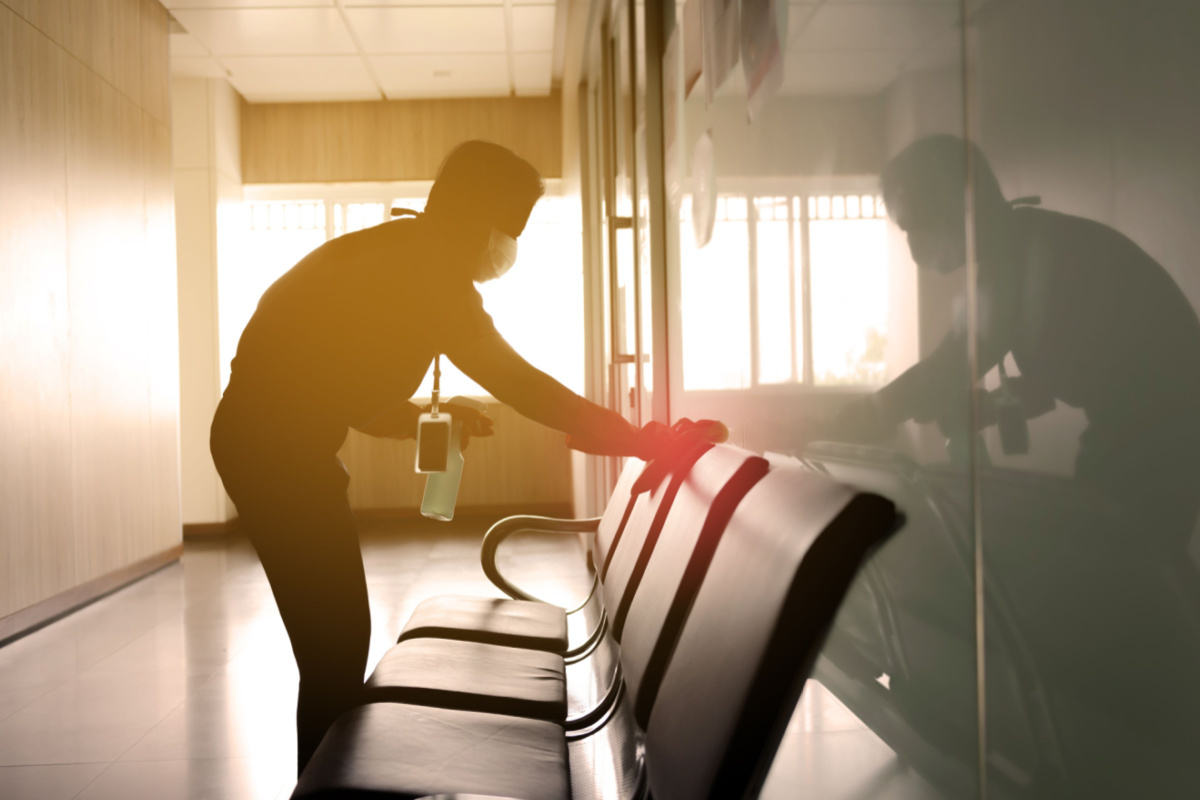“I don’t think we can ever let our guard down against [COVID-19]. It’s probably here to stay.”
This quote from a University of Florida biostatistics professor sums up how many of us feel about the roller-coaster of Covid variants and case surges. Every time the “new normal” seems within our reach, the virus shifts its track to take us on another unexpected turn.
The problem is that each iteration brings unique challenges that make it nearly impossible to predict what will happen next. For example, the CDC reports that while the Delta variant caused more severe infections and spread faster than the original virus strain, the latest Omicron variant is the fastest-spreading version we’ve dealt with yet.
As much as we desperately want to return to life pre-COVID, businesses need to implement procedures that acknowledge COVID’s permanent presence and fight against the ways infections spread, especially when it comes to heightened cleaning and disinfection practices.
So, what exactly is Omicron, and how is it spreading so quickly? Let’s look further into the latest coronavirus variant and how companies can keep their people safe, clients happy, and businesses intact.
Omicron is spreading at lightning speed
Viruses naturally mutate over time, moving more effectively from host to host, which we’ve seen COVID-19 do several times since the pandemic began. And each variant only seems to spread faster. The CDC’s timeline listed the first confirmed U.S. Omicron case on December 1, 2021. Since then, Omicron case levels have spiked to record levels, escalating faster than predicted. As of December 25, the CDC reported that Omicron cases made up 58.6% of all infections in the U.S.
In Florida, cases jumped from 1,600 at the beginning of December to almost 60,000 in just a few weeks. A University of Florida study reports the state’s peak wave of infections is still on the way and expected to reach about 80,000 cases per day. According to the study, Omicron exploded so rapidly because it infected people twice as fast, transferring symptoms in just three days compared to five or more with the Delta variant.
Even though there are no mandatory shutdowns, many industries are feeling the effects, with Omicron outbreaks and widespread illnesses causing staffing shortages and business closures, disrupting everything from airlines to restaurants. The timing couldn’t be worse for the many companies hoping to reopen this month. For example, Amazon’s CEO expected workers to be in the office at least three days a week by January.
Several South Florida businesses and others dealing with the Omicron surge don’t want to give up on having workers come to the office, saying it helped foster a culture of togetherness and teamwork. Omicron, paired with the tight labor market, has put pressure on business owners to do whatever it takes to instill a sense of workplace safety—and enhanced cleaning appears to be one of the best methods to mitigate viral threats.
According to a recent survey, 62% of employees say simply seeing sanitation professionals regularly at their workplace would make them feel safer, and nearly 40% would leave their job due to improper cleaning.
Five tips to protect your office from Omicron
1. Use the proper disinfectants
To substantially inactivate the SARS-CoV-2 virus and its variants on surfaces, everyday household cleaners won’t necessarily do the trick. Instead, the surface must be treated with a disinfectant product registered with the Environmental Protection Agency’s (EPA’s) List N, which should kill all strains and variants of the coronavirus when used according to the label directions. For safety, remember to:
- Store and use disinfectants responsibly and appropriately according to the label.
- Avoid mixing bleach with other cleaning and disinfection products, which can cause fumes that are dangerous to breathe in.
- Ensure adequate ventilation when using disinfection products.
- Wear gloves, gowns, and any additional PPE appropriate for the chemicals used.
2. Mind your surface types and contact time
According to the CDC, the risk of transmitting the virus via surfaces depends highly upon the surface type and the time between when a surface becomes contaminated and when an infected person touches it. For instance, the virus is often undetectable on porous surfaces such as fabrics within minutes to hours. However, COVID-19 can remain viable on non-porous surfaces such as metals and plastics—the most common materials found in office settings—for days to weeks. Therefore, disinfecting these surfaces regularly and immediately when an infected person has been near them is crucial to avoid outbreaks.
3. Focus on high-touch point areas
The more people who touch a surface, the higher the risk of spreading viruses. Pay special attention to high-traffic areas and spaces where people are likely to gather, such as:
- Cafeterias and kitchens
- Breakrooms
- Waiting rooms
- Bathrooms
In these areas, clean high-touch surfaces at least once a day, or sooner if an infected person has been in the location. Examples include:
- Counters, desks, and tables
- Shopping carts
- Doorknobs, handles, and stair rails
- Elevator buttons
- Keyboards and phones
- Refrigerators and microwaves
- Toilets, faucets, and sinks
4. Clean frequently
Frequent cleaning is necessary to keep viruses like COVID-19, the flu, and “Flurona” at bay. The CDC recommends cleaning once a day to remove virus particles on surfaces. Routine cleaning with soap or detergent can substantially reduce virus levels and help protect workers from getting sick. If an infected person has been in the area, clean immediately using the proper disinfectants.
5. Establish a cross-contamination prevention strategy
Cross-contamination happens when people touch harmful bacteria or virus particles and unintentionally pass them to another person via a handshake or by touching a surface. Cross-contamination is extremely dangerous because once a surface is tainted, it could remain infectious for up to 9 days, putting employees at unnecessary risk. Going to the source and establishing policies that focus on best hygiene practices and social distancing can dramatically reduce issues with cross-contamination, such as:
- Provide hand sanitizer and disposable cleaning wipes that contain at least 60% alcohol.
- Post signage for employees to wash their hands often and provide disposable paper towels for drying.
- Adjust cubicles, working areas, and seating in waiting rooms so that people can remain at least six feet apart.
- Encourage visitors and workers to wear masks indoors, especially in close quarters or high-traffic areas.
- Train cleaning staff on best practices to avoid spreading virus particles via infected rags and towels or work with a professional cleaning company with experience in cross-contamination prevention.
Peace of mind cleaning with professional support
In the era of COVID-19 and its rapidly spreading variants like Omicron, the standard janitorial “wipe and rinse” method of using soaps and detergents won’t effectively stop the rampant spread of these virulent germs and pathogens. At the same time, commercial-level cleaning supplies are expensive to buy and store, assuming you know what to buy and how to use the solutions correctly. Advanced janitorial services are critical to keeping your building safe, but they may not be within the scope of your in-house team.
Experienced cleaning technicians have the proper training to deal with viral threats. That’s why it’s essential to consider enhanced commercial cleaning solutions that focus on science-backed disinfection techniques. Seeking the aid of professional cleaning support ensures your office or facility has the best protection against virus outbreaks to keep your staff healthy and comfortable.
Total Cleaning is trained for infection prevention
At Total Cleaning, we have decades of experience in the cleaning business. Our staff continues to train and stay updated on the latest certifications, equipment, and disinfection practices. We work with a wide array of industries, from post-construction worksites to medical-grade facilities.
All Total Cleaning employees receive training on the Cleaning Management Institute (CMI) Standards, giving them extensive chemistry knowledge on keeping buildings spotless while preventing viral outbreaks—a necessity in our COVID-19 climate. Recently, we became one of the only Florida commercial cleaning companies to receive GBAC Star accreditation to show our level of commitment to protecting our building—and yours—at the highest level.
Contact our professionals at Total Cleaning for a complimentary on-site risk assessment.

